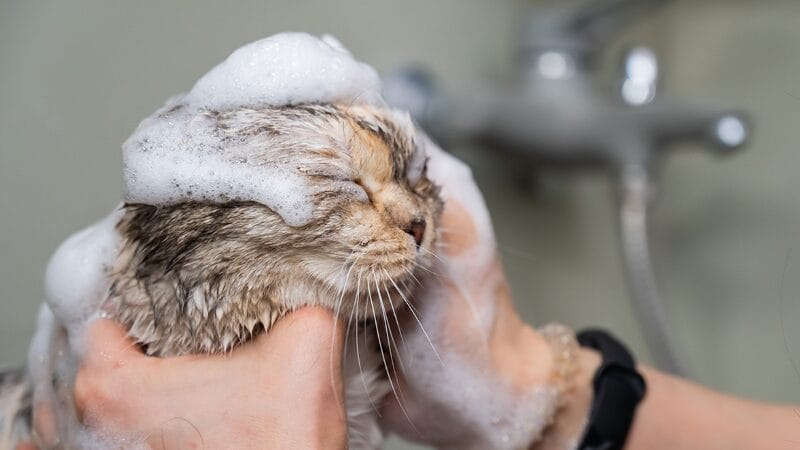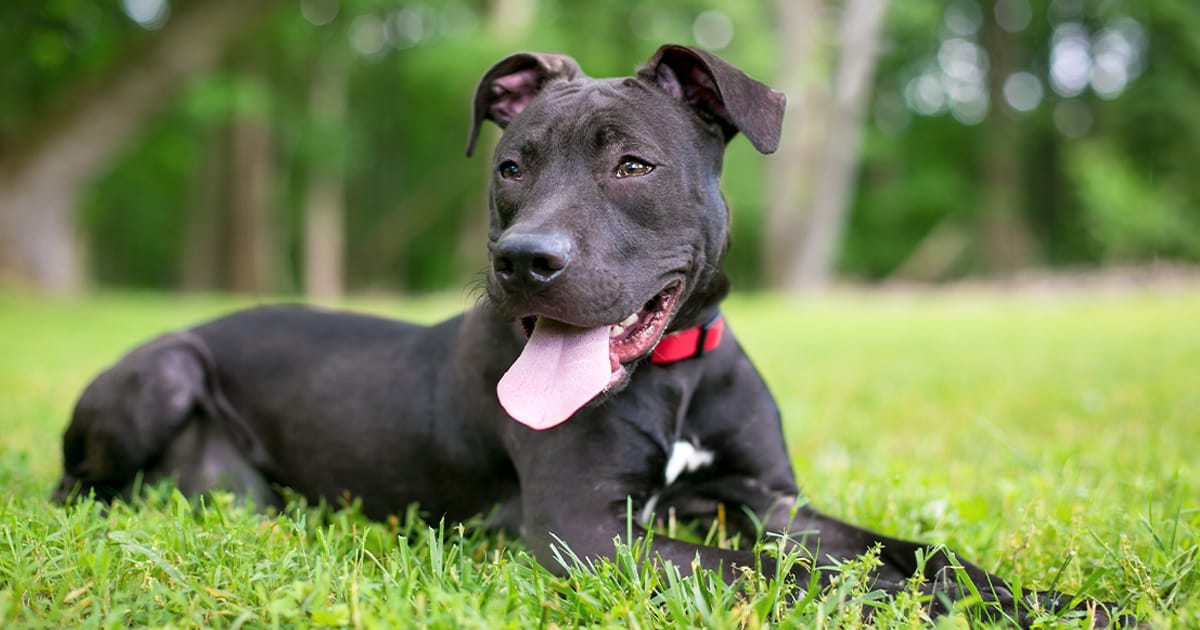How to Remove Skunk Odor From Your Pet
Tomato juice isn’t the best way to get rid of skunk odor from your pet. Here’s MedVet’s at-home remedy to remove the oils and odor.
Skunks are well-known for their distinctive defense mechanism: spraying a thick, oily, and extremely pungent secretion from their anal glands when they feel threatened. If your pet happens to be the target of this spray, you’ll find yourself dealing with a very stinky situation. While you may have heard that bathing your pet in tomato juice is the best solution, this method rarely works effectively. Instead, follow these steps from our MedVet experts for a more reliable at-home remedy to remove the oils and odor from your pet.
Ingredients for the Home Remedy to Remove Skunk Odor
- 1 quart (32 ounces) of 3% hydrogen peroxide
- 1/4 cup of baking soda
- 1-2 teaspoons of a gentle dishwashing liquid (such as Dawn)
- Pet shampoo
- Water
- Rubber gloves
Six Steps to Remove Skunk Odor from Your Pet
- Rinse the Eyes: If your pet was sprayed in the face, start by gently rinsing their eyes with cool water to remove any oils. This will help prevent irritation and discomfort.
- Mix the Solution: In a large bowl, combine the hydrogen peroxide, baking soda, and dishwashing liquid. Stir until the mixture is well-blended.
- Apply the Mixture: While wearing rubber gloves, apply the mixture to the areas of your pet that were sprayed. Work the solution into your pet’s fur, ensuring it reaches the skin. Be especially thorough in areas where the odor is strongest.
- Rinse Thoroughly: After about five minutes, rinse the mixture off your pet with warm water. Be careful to avoid getting the solution in your pet’s eyes, ears, or mouth.
- Wash with Pet Shampoo: Follow up by washing your pet thoroughly with a pet shampoo. This will help remove any remaining oils and ensure your pet is clean and fresh.
- Dry Your Pet: Towel dry your pet and then let them finish drying in a warm, comfortable area. This will help prevent them from getting cold and will speed up the drying process.

Important Precautions and Post-Treatment Care
- Keep Your Pet Outside: If possible, keep your pet outside until the odor has completely dissipated. The oils from the skunk’s spray can be difficult to remove from fabric, so it’s best to avoid bringing your pet inside until they are fully de-skunked.
- Ventilate the Area: Ensure the area where you are treating your pet is well-ventilated to help disperse the odor and make the process more comfortable for both you and your pet.
- Do Not Pre-Mix the Solution: Do not prepare the mixture ahead of time or store it in a closed container. The combination of hydrogen peroxide and baking soda can create a chemical reaction that may cause the container to explode.
- Monitor Your Pet: Keep an eye on your pet for any signs of discomfort or unusual behavior. While most reactions to skunk spray are mild, it’s important to stay alert.
- Wash Bedding and Collars: After treating your pet, wash any bedding, collars, or other items that may have come into contact with the skunk spray to prevent the odor from lingering.

When to Seek Veterinary Care for Skunk Spray Exposure
According to the ASPCA Animal Poison Control Center, the effects of skunk spray are usually mild and may include drooling, conjunctivitis (inflammation of the eye), squinting, face-rubbing, rolling, temporary blindness, and vomiting. Our blog posts on conjunctivitis in cats and conjunctivitis in dogs offers in-depth information on the condition.
In some cases, skunk spray can cause severe and potentially life-threatening red blood cell damage, such as Heinz body anemia and methemoglobinemia. These conditions occur when thiols in the skunk spray react with your pet’s red blood cells, leading to significant health issues.
Although it’s unlikely that your pet will get close enough to a skunk to be bitten, skunks can carry rabies. Therefore, it’s important to ensure your pet’s vaccinations are up-to-date.
If you notice any of these signs or if you believe your pet is having a medical emergency, contact your family veterinarian immediately or find the nearest emergency veterinary hospital, such as MedVet. Prompt medical attention can help ensure your pet’s safety and wellbeing.
Visit our Pet Care Resources library for more pet health and safety information.
FAQs
Learn More
For ways to ensure your pet lives a happier, healthier life, visit our Pet Care Resources library.
Pet Care ResourcesContents
Learn More
For ways to ensure your pet lives a happier, healthier life, visit our Pet Care Resources library.
Pet Care Resources

